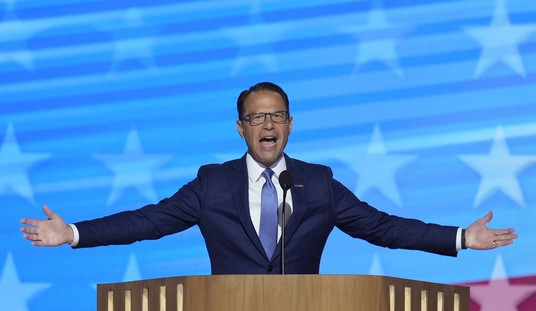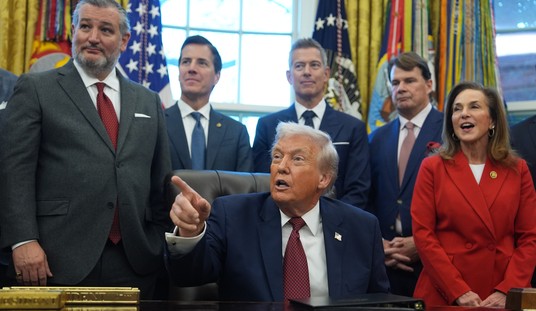Barack Obama and the White House threaten vetoes daily on bills under consideration in the Republican-controlled Congress, especially those impacting Obama’s signature health-care system. That threat may end up backfiring on Obama when it comes to the medical-device tax. The House took action yesterday on the most unpopular funding mechanism in ObamaCare, repealing it outright on a 280-140 vote. That’s just shy of the two-thirds necessary, but the GOP has some reserves on this vote:
The 2.3 percent tax on medical devices enacted as part of that law passed Thursday in the House 280-140, giving Republicans hope they’ll have the votes for an override, which requires a two-thirds majority. That came with a dozen Republicans absent for the vote. Every Republican present and 46 Democrats voted to nuke the tax.
A nonbinding vote to repeal the medical device tax passed the Senate with a veto-proof majority backed by 34 members of the Democratic caucus as part of the 2013 budget resolution vote-a-rama in the Senate, but never got anywhere with then-Senate Majority Leader Harry Reid, D-Nev., putting the clamps down on the chamber.
This vote presents Senate Democrats with three problems. First, there are fewer of them than in 2013, dropping from 55 seats (including two independents) to 46. Republicans don’t need 34 Democrats to go along with them for a veto-proof majority — they only need 13. Second, Reid no longer controls the agenda, which means that Mitch McConnell can put a repeal of the medical device tax on the floor at any time, and he’s already promised to do so as soon as he gets it from the House.
This brings us to the biggest of the problems for Senate Democrats. ObamaCare costs will shoot through the roof in the next year, thanks to large premium increases and the need to escalate subsidies to offset them. The medical-device tax accounts for $26 billion in estimated revenue for the first ten years of the program, a chunk of money whose elimination will create even more red ink, with a Republican Congress unlikely to replace it. On the other hand, several Senate Democrats represent states where medical devices are manufactured or their producers headquartered, including the two Senators from Minnesota, the two from Massachusetts, and so on. Their constituents want this tax eliminated, and so do those Senators … or at least they did when the issue was purely academic in 2013.
The showdown looks almost unavoidable for Obama, and potentially humiliating. However, Republicans have another option laid out yesterday by Heather Higgins and Hadley Heath Manning at The Hill. The two activists from Independent Women’s Voice argue that a repeal of the tax now would lessen leverage for a full ObamaCare repeal in 2017:
Republicans ought to take a longer view of this battle and craft a smart strategy that does more than just satisfy one interest group. If they play it right, Republicans can simultaneously mitigate the immediate damage caused by the tax—demonstrating to industry and its backers that they are committed to ultimately rescinding the tax—without either reifying the trope that Republicans care more about corporate contributors than they do about average Americans, or undermining the cause of repealing and replacing ObamaCare in its entirety in 2017 – both of which are at risk with the present approach.
This year, the priority should be to pass a moratorium on the medical device tax that would last until 2017. That’s a vote that is in line with many GOP members’ previous votes to repeal the tax. A moratorium would spare the medical device industry from immediate and near-term financial harm, while preserving the important policy principle that no special interest should jump ahead in line and be permanently out from under ObamaCare while the law exists.
This approach would still be a win for the industry, but unlike just repealing the tax now, also for Republicans’ long term goals.
With a moratorium, unlike repeal, the medical device industry would still be better off, but it would have an incentive to stay engaged in working to roll back ObamaCare completely in 2017. They would have incentive to support candidates committed to repeal, which—from Republicans’ most crass perspective—is good news in terms of campaign fundraising and also for the industry lobbyists.
The best reform would be full repeal of the entire ObamaCare law and the implementation of a market-based health-insurance reform that eliminates mandates and restores proper pricing signals for routine care. This strategy offers more leverage for that longer-term goal, even if it relies on the kind of “crass” lobbying leverage most find distasteful. Either way, they have Senate Democrats in a vise, and either option turns the crank on them and President Obama.







Join the conversation as a VIP Member